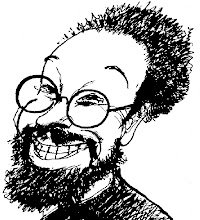Stephen L. Carter has a good piece in this morning's New York Times about how subtlety gets lost in the media--mainstream and otherwise.
His starting point is the recent speech by U.S. Attorney General Eric Holder, a speech most remembered--because it was the one thing reported--for Holder calling us "a nation of cowards" because of our reluctance to talk about race in America.
Now, here's the thing: I was a journalist for nearly 20 years, and one of the things I loved about the profession was the chance it gave me to do things I was (sometimes) afraid to; go places I might not have; and talk to people I'd never, ever have met otherwise.
More and more, though, I've come to see journalism as the equivalent of the high school kid who goes around telling people the bad things someone else has said because he wants to play "let's you and him fight." And it's gotten worse with the coarsening effect of the Internet and the escalating influence of people like Matt Drudge.
In his piece today, Carter makes the point that we don't just talk about race "in simplistic categories." It's anything important: "Whether we argue over war or the economy, marriage or religion, abortion or guns, we reduce our ideas to just the right size for the adolescent tantrum of the bumper sticker."
And he quotes from Ray Bradbury's "Farenheit 451"--the title comes from the temperature at which paper burns--where the fire chief in charge of burning books explains why:
"Books, says the fire chief, make ideas too difficult. The reader winds up lost, he says, 'in a great welter of nouns and verbs and adjectives.' " And so people demanded they be burned because the ideas they contained were too complicated.
Wednesday, February 25, 2009
Subscribe to:
Post Comments (Atom)

No comments:
Post a Comment